The Northwest dodged a bullet December 22, 2020, when yet another oil train derailed and caught fire. By the end of the disaster in Custer, Washington, the derailment spilled 29,000 gallons of crude oil from North Dakota, much of which burned in the ensuing blaze that lasted a full eight hours. Cleanup crews did the best they could, but as much as 8,000 gallons of crude oil will continue to contaminate the site.
As bad as it was, the region got lucky. The train had just passed through downtown Bellingham when it derailed in an area away from major population centers and injured no one. Traveling at just 7 miles per hour (mph), only three cars ruptured, and as of this writing, the oil has not contaminated the groundwater. Compared to the disasters of other oil train derailments, Whatcom County got off light.
Unfortunately, as long as oil trains continue to move petroleum, they will test the Northwest’s lucky streak. Washington still permits four oil refineries on Puget Sound to accept oil by rail, and these trains deliver a lot of crude through small towns and big cities alike—more than 50 million barrels of crude each year since 2017. Even with the COVID pandemic and economic recession, nearly 57 million barrels of crude were delivered by train in 2020. Barring policy changes, oil trains will be with us for the foreseeable future, and with them, potential catastrophe.
To illustrate the risk, Sightline has compiled information on major oil train derailments across North America since 2013. (Note: This list is not comprehensive.)
1. July 6, 2013, Lac-Mégantic, Quebec: An unattended parked train carrying more than 2 million gallons of crude oil started to roll, reaching a speed of 65 mph when 63 tank cars carrying crude oil derailed and exploded near the town center, killing 47 people and destroying 40 buildings and 53 vehicles. Much of the oil that did not burn seeped into the soil and the Chaudiere River.
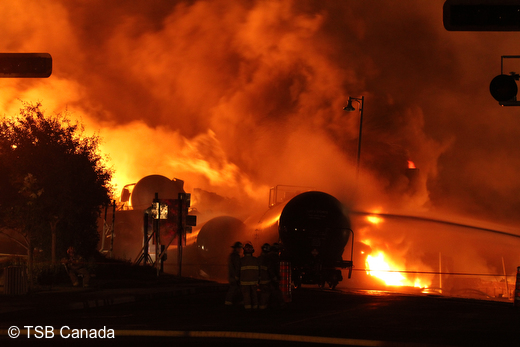
Photo: Lac-Mégantic Derailment (All rights reserved, used with permission.) Image by TSB Canada
2. October 19, 2013, Gainford, Alberta: A train bound for Vancouver, BC derailed sending four cars containing crude oil and nine containing liquefied petroleum gas (LPG) tumbling off the tracks. Three of the LPG cars caught fire, destroying 600 feet of track.
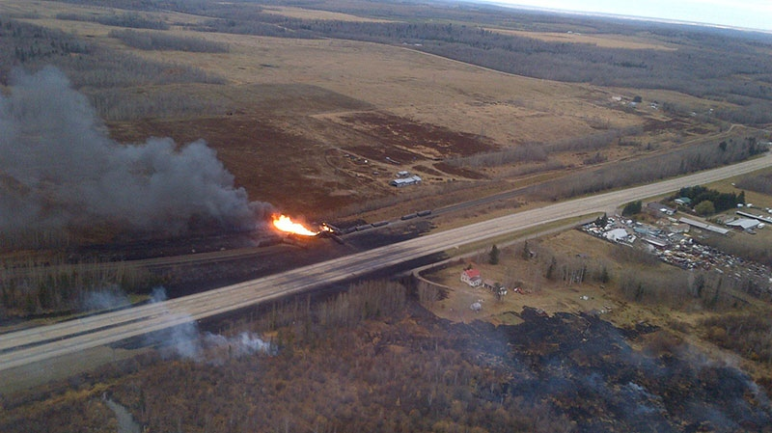
Photo: RCMP Air 1 helicopter captures an explosion after a train derailed in Gainford, Alta. on Saturday, Oct. 19, 2013 (Parkland County / Facebook)
3. November 7, 2013, Aliceville, Alabama: Twenty-nine cars of an oil train derailed, with 26 railcars spilling a total of 720,000 gallons of crude oil. The cleanup effort managed to remove 228,000 gallons from the environment.
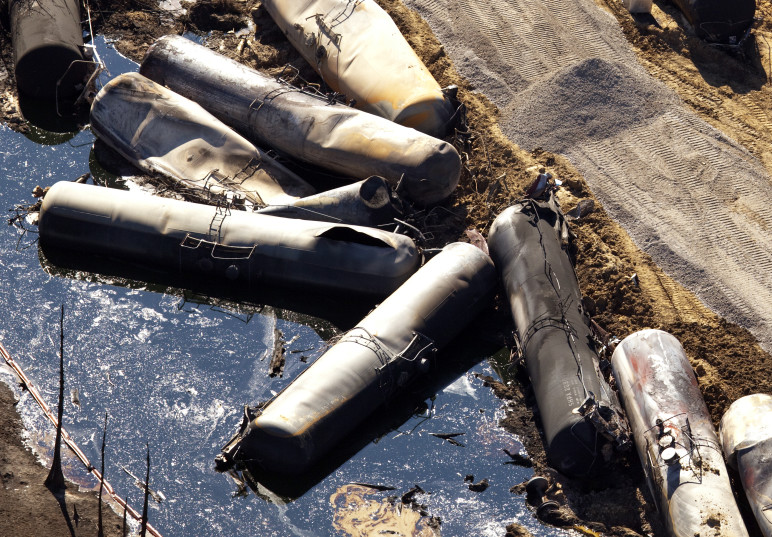
Photo: Oil train derailment and river contamination, Aliceville, AL by John L. Wathen (used with permission)
4. December 30, 2013, Casselton, North Dakota: A BNSF Railway oil train collided with a previously derailed grain train, resulting in a crash that then derailed 20 cars carrying crude oil. Eighteen of those cars were breached and released 476,000 gallons of crude oil. BNSF reported the damages at $13.5 million, but that amount does not include the environmental damages.
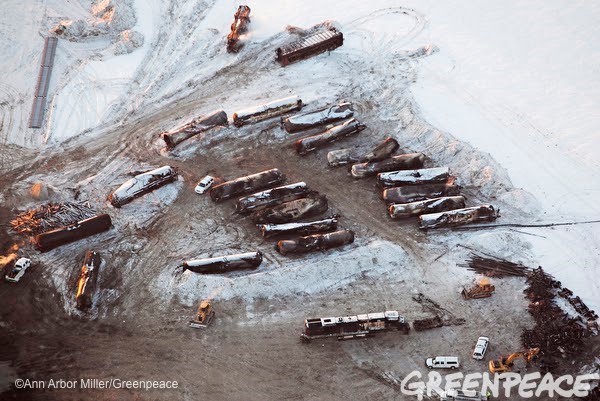
Photo: Image by Greenpeace(used with permission)
5. January 7, 2014, Plaster Rock, New Brunswick: This derailment involved 19 railcars and one locomotive. Twelve of the derailed cars carried dangerous goods: crude oil (5 cars), butane (4), residue of butane (1), residue of ethanol (1), and residue of acid (1). More than 60,000 gallons of hydrocarbons spilled and caught fire. No one was injured, but 150 residents within a one-mile radius were evacuated.
6. January 20, 2014, Philadelphia, Pennsylvania: A train derailed on a bridge spanning the Schuylkill River and I-76. Six of the seven derailed cars carried crude oil, and two of those cars dangled over the river.
7. January 31, 2014, New Augusta, Mississippi: Up to 50,000 gallons of crude oil leaked from up to 19 derailed cars. Railcars containing methanol leaked in a separate area, threatening the Leaf River.
8. April 30, 2014, Lynchburg, Virginia: Seventeen tank cars carrying crude oil derailed, three of which ended up partially submerged in the James River. One car was breached, causing almost 30,000 gallons of crude oil to leak into the river.
9. July 24, 2014, Seattle, Washington: Around 2:00 a.m., three tank cars filled with crude oil, one buffer car, and one locomotive derailed under the Magnolia Bridge in Seattle’s Interbay neighborhood. The train was estimated to be moving at 5 mph. No hazardous materials were released.
10. January 31, 2015, Philadelphia, Pennsylvania: Eleven cars containing crude oil derailed around 3 a.m. The cars stayed upright, and there were no leaks and no injuries.
11. February 14, 2015, Gladwick, Ontario: Twenty-nine cars derailed, 19 tank cars were breached, and approximately 450,000 gallons of crude oil leaked. The resulting fire burned for five days.
12. February 16, 2015, Mount Carbon, West Virginia: In total, 27 tank cars derailed, resulting in a fire that damaged two dozen railcars. Approximately 362,000 gallons of crude oil leaked from the cars. Crude oil flowed into the Kanawha River and contaminated the nearby soil.
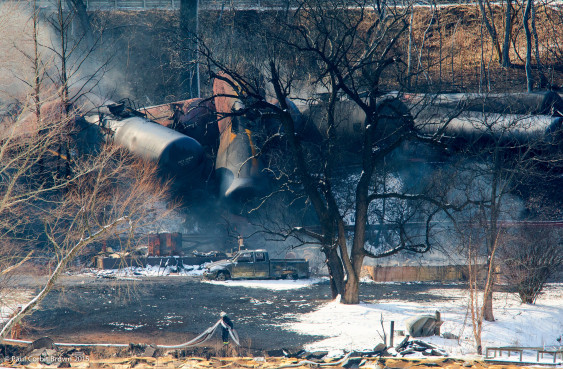
Photo: Kanawha River, West Virginia, Crude Oil Derailment by Paul Corbit Brown (used with permission)
13. March 5, 2015, Galena, Illinois: Twenty-one tank cars carrying Bakken crude oil derailed, and 10 tank cars were breached, releasing more than 125,000 gallons of crude oil and causing a fire that burned for more than two days.
14. March 7, 2015, Gogoma, Ontario: Thirty-nine tank cars derailed, releasing approximately 680,000 gallons of crude oil to the environment. Some of the leaked crude oil ignited, and some entered the Makami River. The train was traveling at 43 mph, which increased the severity of the derailment.
15. May 6, 2015, Heimdal, North Dakota: Six tank cars of a train carrying Bakken crude oil derailed. Five tank cars were breached and released 96,400 gallons of crude oil. The leaked crude oil caused a fire one mile east of Heimdal, prompting 30 people to be evacuated. BNSF Railway estimated the damage at $5 million.
The latest on the train derailment. Click here for details http://t.co/CkwQuCMbGq pic.twitter.com/jnGh5kQluy
— KX News (@KXMB) May 6, 2015
16. June 3, 2016, Mosier, Oregon: A train carrying Bakken crude oil from Newtown, North Dakota, to Tacoma, Washington, was traveling at 24 mph before it derailed. A total of 16 tank cars derailed, three of which caught fire, as approximately 50,000 gallons of crude oil leaked.
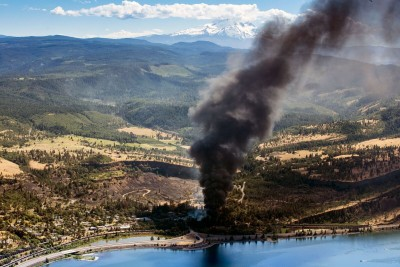
Photo: Image by Paloma Ayala, courtesy of Columbia Riverkeeper (used with permission)
17. April 30, 2017, Money, Mississippi: A stationary train with 114 tank cars loaded with crude oil was struck in the rear by a freight train. One tank car released oil, and the resulting fire engulfed a new and purportedly safer model DOT-117 tank car even thought it was not breached. This was the first known incident involving a DOT-117 tank car.
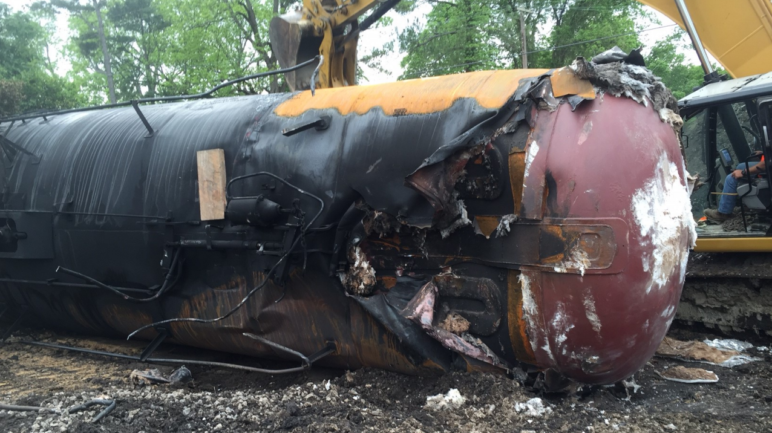
Photo: National Transportation Safety Board. Image by National Transportation Safety Board
18. June 22, 2018, Doon, Iowa: A train that originated from Alberta and included 98 tank cars loaded with 2.4 million gallons of crude oil was traveling at 48 mph when it derailed. Thirty-five DOT-117 tank cars went off the tracks, 10 of which were breached in the incident, releasing about 160,000 gallons of crude oil. Some of the released crude oil entered the Little Rock River.
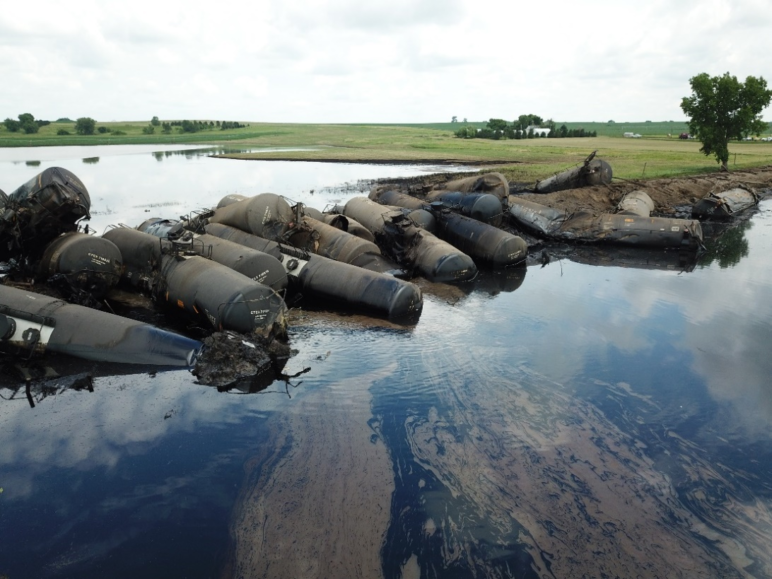
Photo: National Transportation Safety Board. Image by National Transportation Safety Board
19. December 9, 2019, Guernsey, Saskatchewan: Of the 33 oil tank cars that derailed, 20 were breached and spilled nearly 400,000 gallons of oil. The resulting fire burned for 24 hours. Five to ten acres were directly affected by the derailment and spill.
20. February 6, 2020, Guernsey, Saskatchewan: Thirty-two tank cars derailed, with the amount of crude oil spilled still to be determined. Several cars caught fire, and while there were no injuries, 85 people were evacuated as a safety precaution. The relatively high speed of the train (42 mph) when it braked and derailed likely contributed to the scale of the disaster.
21. December 22, 2020, Custer, Washington: A train traveling from North Dakota derailed in Whatcom County. Three of the 10 cars that derailed leaked crude oil and caught fire. The fires burned on the ground for over two hours, while the fires in the railcars burned for eight hours. Nearly 29,000 gallons of crude oil was spilled.

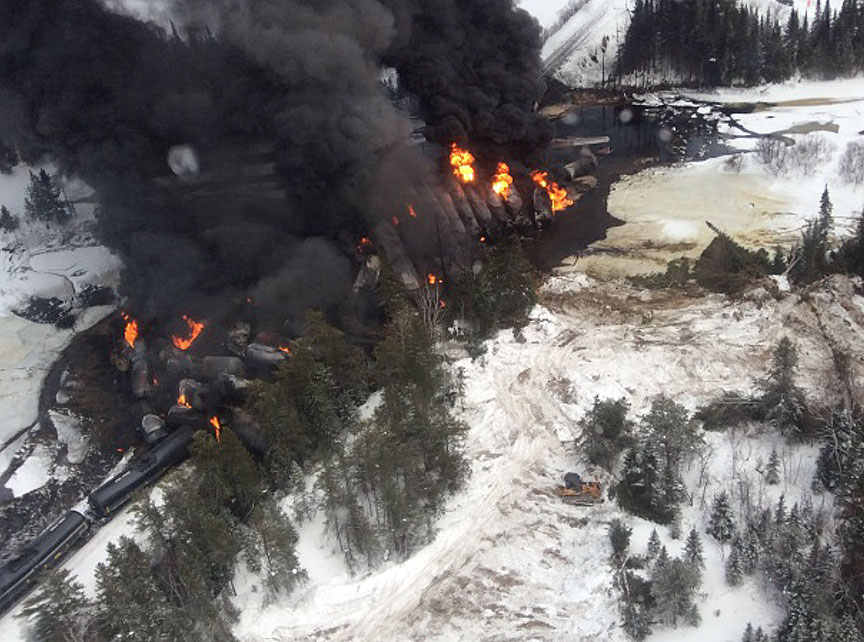
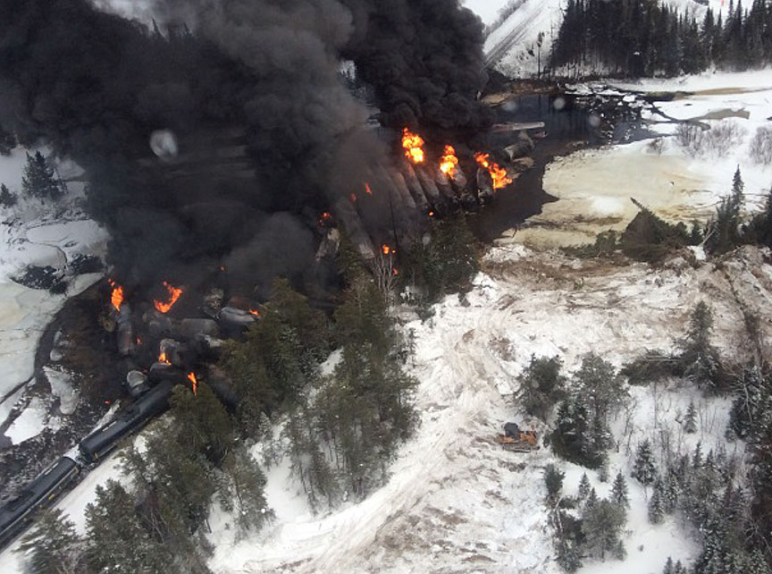

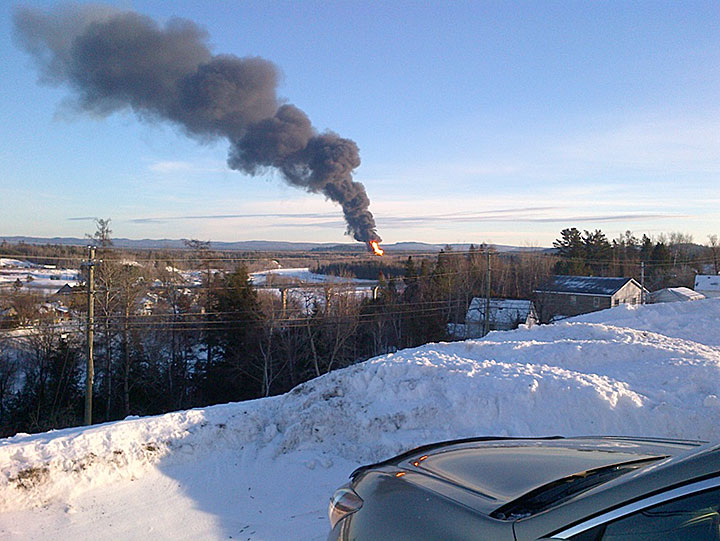
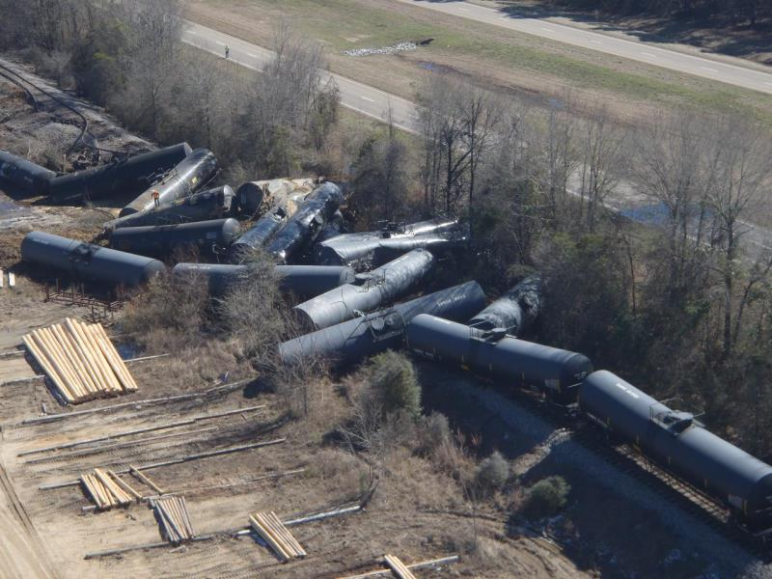
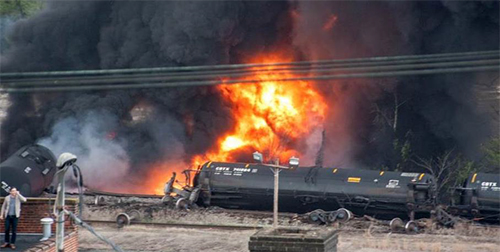
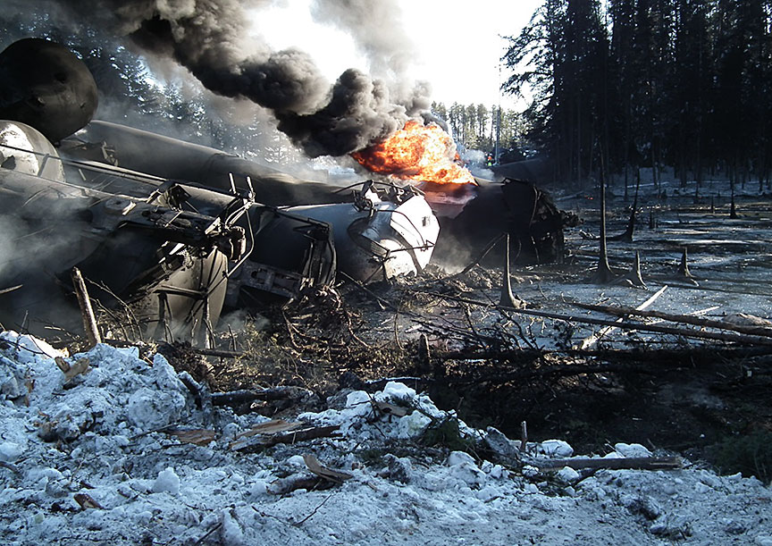
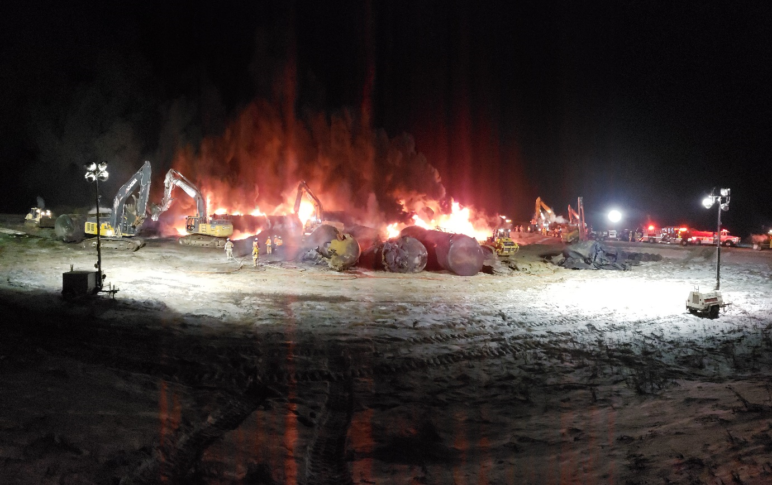
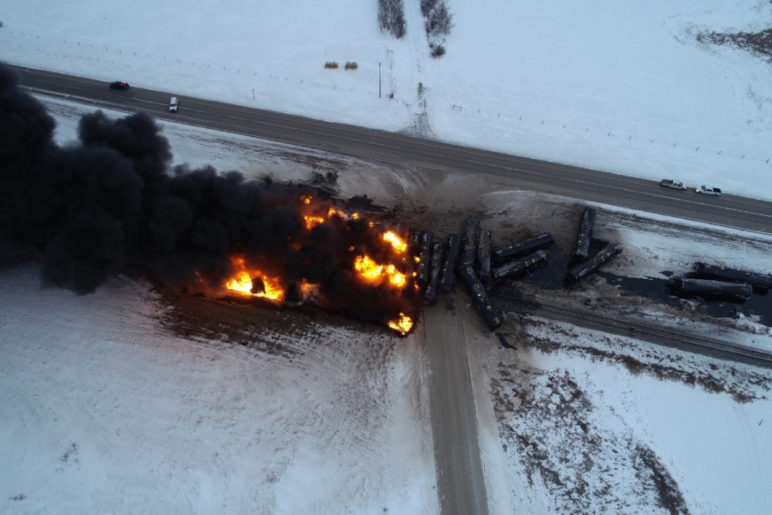
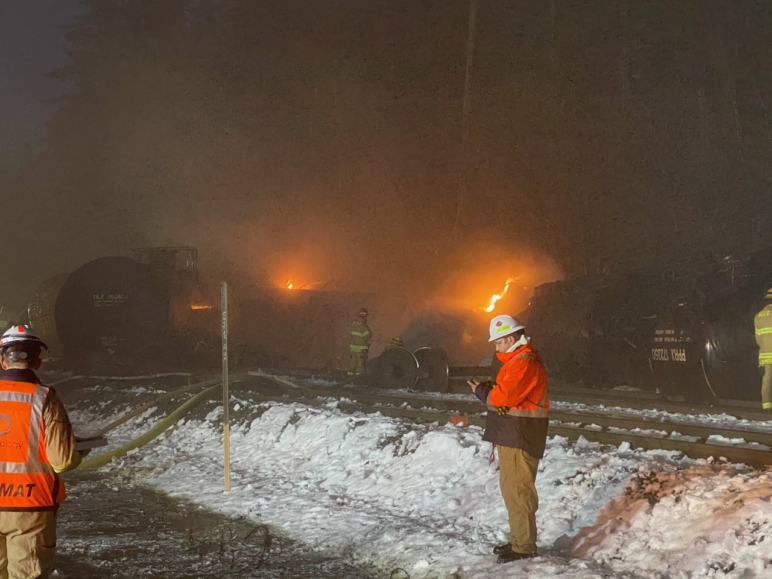





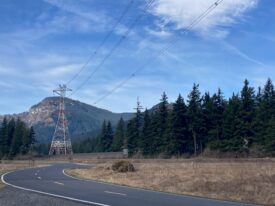

theodora tsongas
and when the derailments cause fires, and the oil burns, the air is polluted, and how many people’s breathing is affected by the polluted air? Saying no one was injured does not consider short and long term injuries caused by air and water pollution from oil train derailments.